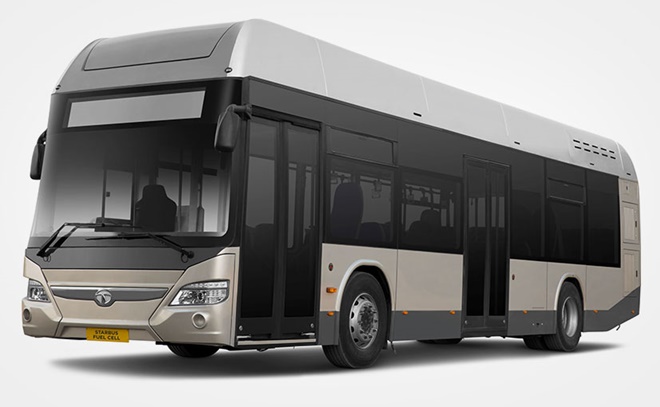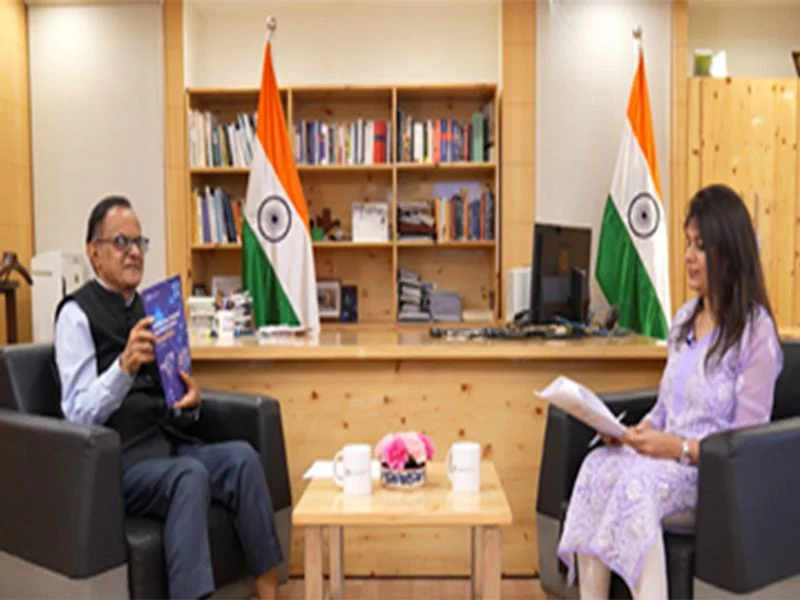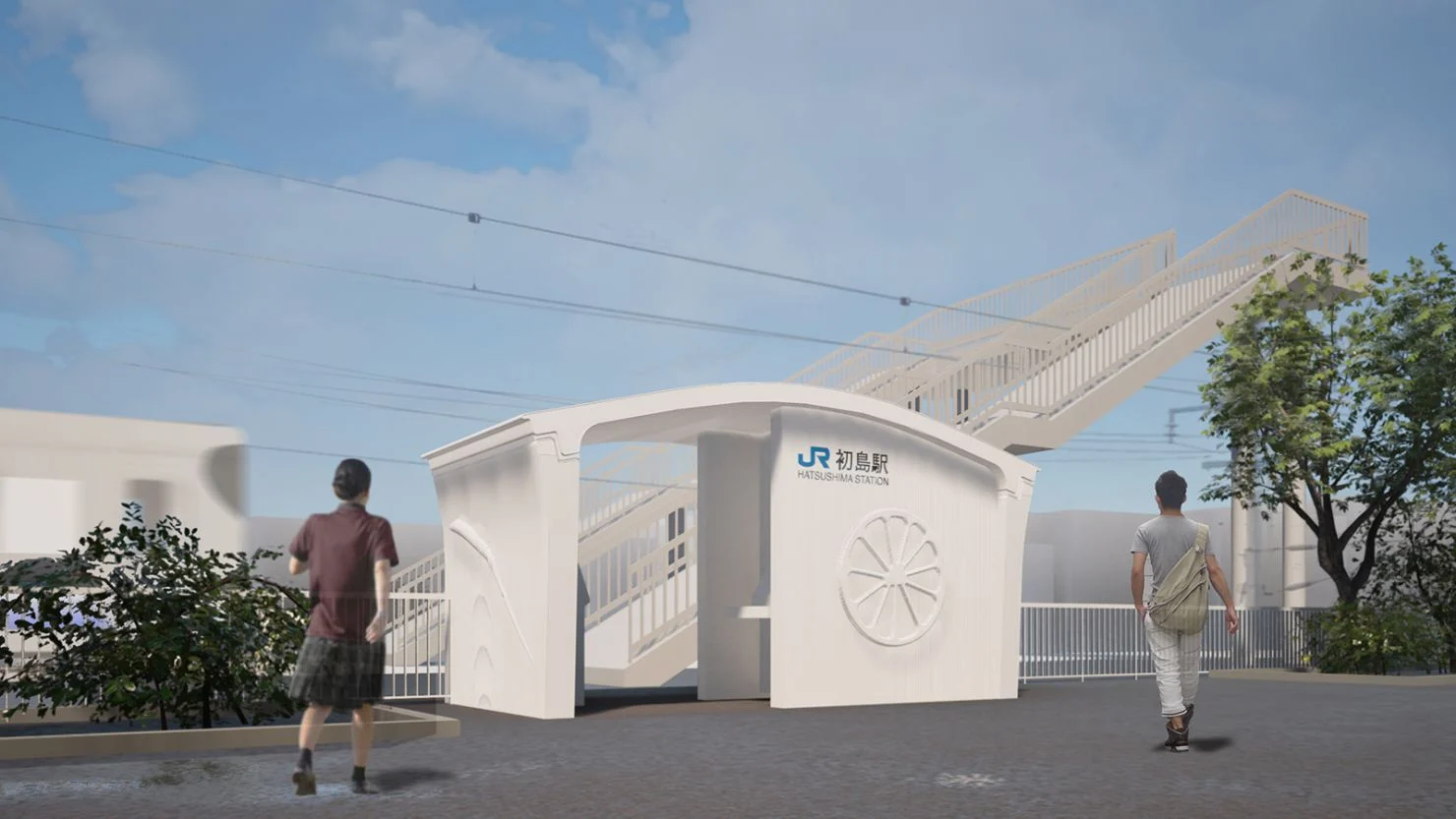Blog Credit: Trupti Thakur
Image Courtesy: Google
India’s First FECV Bus
Tata Motors, India’s largest commercial vehicle manufacturer, made a giant leap forward in its commitment to move India forward with smarter and greener mobility solutions by delivering first-of-its-kind Hydrogen Fuel Cell powered (FCEV) buses to Indian Oil Corporation Ltd. (IOCL), the country’s largest petroleum company. Heralding a new era of fully decarbonized transport, two buses were flagged off by Shri Hardeep Singh Puri, Hon’ble Union Minister for Petroleum & Natural Gas and Housing & Urban Affairs, Shri Rameswar Teli, Union Minister of State for Petroleum & Natural Gas and Labour & Employment, Shri Pankaj Jain, Secretary, Ministry of Petroleum & Natural Gas, Shri S M Vaidya, Chairman, IOCL, Dr. Umish Srivastva, Executive Director, IOCL, and Mr. Rajendra Petkar, President & Chief Technology Officer, Tata Motors, along with delegates from Government of India, Government of New Delhi and Tata Motors.
Speaking about the successful deployment of first-of-its-kind FCEV bus, Mr. Girish Wagh, Executive Director, Tata Motors, said, “This is an outcome of the progressive policies of the Government, IOCL’s focus on future readiness and Tata Motors’ R&D prowess, all collaborating to fulfil the common vision of clean mobility in India. The delivery of the FCEV buses to IOCL marks a significant step forward in this journey and we are grateful for the trust and support of our partners. At Tata Motors, we always prioritise nation building and are leading the global megatrend of sustainable, connected, and safer mobility in the country. The delivery of these buses today heralds a new era in inter-city mass public transport and marks another step forward towards fulfilling the aspiration of sustainable mobility. With proactive actions to develop and adapt new age technologies, we are creating future-ready transport solutions for both cargo and people to address the mobility needs of tomorrow’s India, today.”
In June 2021, Tata Motors had won a tender from IOCL to provide 15 FCEV buses to evaluate the potential of hydrogen-based PEM fuel-cell technology in India. These buses are to be assessed as potential mass transport solution for inter and intra-city commute.
Built at a dedicated lab in Tata Motors’ world class R&D centre at Pune, these 12-metre long buses are designed for easy ingress and egress with a low-floor design, can seat 35 passengers and were delivered after successful strenuous road tests and validations. Expertise and experiences was acquired by Tata Motors from a collaborative approach with renowned industry partners and research institutions, for adapting the advanced hydrogen-based proton exchange membrane (PEM) fuel cell technology to Indian conditions, and has played a key role in developing the buses.
Speaking about the technology and innovations incorporated in these new age FCEV buses, Mr Rajendra Petkar, President & Chief Technology Officer, Tata Motors said “Tata Motors is proud to deliver the state-of-the-art, new-generation, technologically-advanced, zero-emission fuel cell powered buses to IOCL. This is an important milestone for green mobility in India, harnessing the strong potential of hydrogen as an energy carrier, ushering in hydrogen economy in the transport sector. This bus features 350-bar hydrogen storage system, 70 Kw fuel cell stack, electronic braking system & stability control for higher safety, intelligent transport system, new-generation telematics for efficient, user-friendly vehicle maintenance and tracking along with roomy interiors. This development is a testimony to Tata Motors’ continued commitment and leadership towards carbon neutrality. As a part of the MoU, Tata Motors and IOCL will continue to make further advances in the core technology related to PEM fuel cells in the times to come.”
Being India’s largest and most innovative commercial vehicle manufacturer, Tata Motors research and development facilities have consistently engineered innovative mobility solutions powered by alternate fuel technology, including battery-electric, hybrid, CNG, LNG, Hydrogen ICE and Hydrogen Fuel Cell technologies.
About Tata Motors
Part of the USD 128 billion Tata group, Tata Motors Limited (BSE: 500570 and 570001; NSE: TATAMOTORS and TATAMTRDVR), a USD 42 billion organization, is a leading global automobile manufacturer of cars, utility vehicles, pick-ups, trucks, and buses, offering an extensive range of integrated, smart, and e-mobility solutions. With ‘Connecting Aspirations’ at the core of its brand promise, Tata Motors is India’s market leader in commercial vehicles and ranks among the top three in the passenger vehicles market.
Tata Motors strives to bring new products that captivate the imagination of GenNext customers, fueled by state-of-the-art design and R&D centres located in India, the UK, the US, Italy, and South Korea. By focusing on engineering and tech- enabled automotive solutions catering to the future of mobility, the company’s innovation efforts are focused on developing pioneering technologies that are both sustainable and suited to the evolving market and customer aspirations. The company is pioneering India’s Electric Vehicle (EV) transition and driving the shift towards sustainable mobility solutions by developing a tailored product strategy, leveraging the synergy between Group companies and playing an active role in liaising with the Government of India in developing the policy framework.
With operations in India, the UK, South Korea, Thailand, South Africa and Indonesia, Tata Motors markets its vehicles in Africa, the Middle East, Latin America, Southeast Asia, and the SAARC countries. As of March 31, 2023, Tata Motors’ operations include 88 consolidated subsidiaries, two joint operations, three joint ventures, and numerous equity-accounted associates, including their subsidiaries, over which the company exercises significant influence.
Key Points:
On 25th September 2023, Tata Motors delivered first of its kind two Hydrogen Fuel Cell Vehicle (FCEV) buses to Indian Oil Corporation Ltd, (IOCL). These were flagged off by Union Minister Hardeep Singh Puri, Ministry of Petroleum And Natural Gas (MoPNG); Minister of State (MoS) Rameshwar Teli, MoPNG’ Shrikant Madhav Vaidya, Chairman IOCL’ among others:
- The Indian Oil Corporation is a Maharatna Central Public Sector Enterprises.
- In June 2021. Tata Motors won a tender from IOCL to supply 15 FCEV buses for testing hydrogen-based Proton Exchange Membrane (PEM) fuel-cell technology in India.
- These 12 meter buses, designed for easy boarding and seating 35 passengers, were developed at Tata Motors’ R&D (Research and Development) Center in Pune, Maharashtra.
- This bus features 350 bar storage system, 70 kw fuel cell stack, electronic braking system & stability control for higher safety, intelligent transport system, new-generation telematics for efficient, user-friendly vehicle maintenance, etc.
- The buses underwent rigorous road testing and validation before delivery.
- The buses are equipped with four cylinders each with a capacity of 30 kilograms that can run the buses for 350 kilometers.
- Tata Motors Launched its 3rd vehicle scrapping facility in Surat, Gujarat, on September 23, 2023. The facility, operated by partner Shree Ambica Auto has an annual capacity to disassemble 15.000 end-of-end-of-life vehicles safely and sustainably, including vehicles of all brands/
- Other two similar facilities are in Jaipur, Rajasthan And Bhubneshwar, Odisha.
Indian Navy and IISc Bengaluru Signed MoU for TechnicalCollaboration And Joint Research
Memorandum of Understanding (MoU) was signed between the Indian Navy (IN) and the Indian Institute of Science (IISC), Bengalurum Karnataka, to promote academic cooperation in the varied field on Engineering, improve scientific understanding of defense-related technologies and create new technologies.
- The MoU was signed by Rear Admiral K Srinivasm Assistand Chief of Material (Dockyard & Refit) on behalf of the In and Captain Shridhar Warrier (Retd.) Registrat IISc and Prof B Gurumoorthym Director of Foundation for Science Innovation And Development (FSID) Bengaluru, FSID is promoted by IISc
CO2 based AC:
In collaboration with IISc to undertake development Indigeneously designed and developed future-ready Transcritical carbon Dioxide (CO2) based Air Conditioner (AC) plant working on natural refrigerant.
- By inculcating this technology, the use of halon synthetic refrigerates can be reduced and phased out in near future.
- This MoU paves a path to develop such technologies in the near future.
Blog By: Trupti Thakur

27
SepIndia’s First FECV Bus
Sep 27, 2023Recent Blog
The ITES-QApr 17, 2025
The UPI Circle Of PhonePeApr 16, 2025
Dangerous AI In HealthcareApr 15, 2025
Google’s Iron Wood ChipApr 14, 2025
World’s First 3D Printed Train StationApr 11, 2025




